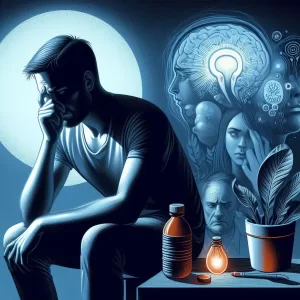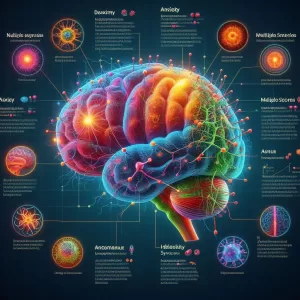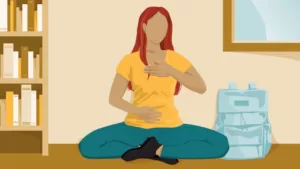Épisode dépressif
Désolé, aucun message n'a été trouvé.
**Question: What is a Depressive Episode?**
**Answer:** A depressive episode is a period of intense sadness, loss of interest, and inability to experience pleasure that persists for at least two weeks. It is a key symptom of major depressive disorder (MDD), also known as clinical depression. During a depressive episode, individuals may experience significant changes in their mood, behavior, and cognition.
**Symptoms:**
* Persistent sadness, hopelessness, or emptiness
* Loss of interest in pleasurable activities (anhedonia)
* Feelings of worthlessness or guilt
* Difficulty concentrating, decision-making, or remembering
* Fatigue or low energy
* Changes in sleep patterns (insomnia or excessive sleeping)
* Appetite changes (increased or decreased)
* Physical aches and pains (unexplained backache or headaches)
* Suicidal thoughts
**Causes:**
The exact causes of depressive episodes are complex and not fully understood, but they are believed to involve a combination of factors, including:
* **Neurochemical imbalances:** Alterations in serotonin, norepinephrine, and dopamine levels in the brain
* **Genetics:** A family history of depression increases the risk
* **Life stressors:** Traumatic events, loss, or chronic stress
* **Medical conditions:** Physical illnesses such as chronic pain, cancer, or thyroid problems
**Treatment:**
Treatment for depressive episodes typically involves a combination of psychotherapy and medication:
* **Psychotherapy (talk therapy):** Focuses on improving mood, coping skills, and identifying thought patterns that contribute to depression.
* **Medication:** Antidepressants (e.g., SSRIs, SNRIs) can help regulate neurochemical imbalances and alleviate symptoms.
**Self-Help Strategies:**
In addition to professional treatment, self-help strategies can support recovery:
* **Exercise:** Regular physical activity can release endorphins that improve mood
* **Healthy diet:** Eating nutritious foods can provide essential nutrients for brain health
* **Sleep hygiene:** Establishing a regular sleep-wake cycle promotes restful sleep
* **Stress management techniques:** Practicing mindfulness, meditation, or deep breathing can reduce stress and improve well-being
* **Social support:** Connecting with friends, family, or support groups provides emotional support and a sense of belonging
**Importance of Seeking Help:**
It is essential to seek professional help if you experience symptoms of a depressive episode. Untreated depression can have serious consequences, including increased risk of suicide, impaired relationships, and decreased productivity. Early intervention and treatment can significantly improve outcomes and reduce the risk of relapse.
2 commentaires
Laisser un commentaire
Articles populaires








#Depression #MentalHealthAwareness
#MentalHealthAwareness #Depression